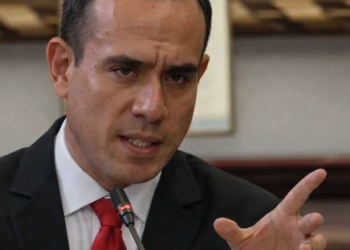Moldova’s pro-EU President, Maia Sandu has announced her second term victory after a tense election run-off that was viewed as a choice between Europe and Russia.
The votes counted revealed Sandu had won with a 55% margin. Afterwards, during a late-night speech, she vowed to be president for all Moldovans.
Her opponent, Alexandr Stoianoglo, who was supported by the pro-Russian Party of Socialists, had called for a closer relationship with Moscow during his campaign

The president’s national security adviser had remarked that there had been “massive interference” from Russia in Moldova’s electoral process that had “high potential to distort the outcome” but Russia had already denied meddling in the ballot, which came a week after another key Eastern European election in Georgia, ended with the president said it had been a “Russian special operation”.
However, Stoianoglo, who was dismissed as prosecutor general by Sandu has denied being pro-Kremlin.
The voter turnout at 54% was high, particularly among expat voters at polling stations abroad.
At the early hours, Stoianoglo was reported to be leading and had been the more successful candidate in Moldova itself, clinching over 51% of the vote.
Stoianoglo also polled particularly well in rural areas and the south, while Sandu was ahead in the cities and with young voters.
But Sandu won in the capital Chisinau, and she completely dominated among the expat voters.
The final result will be announced on Monday.
Meanwhile, the EU Commission President, Ursula von der Leyen congratulated Sandu, saying “it takes a rare kind of strength to overcome the challenges you’ve faced in this election.”
Bomb scares had temporarily disrupted voting in Moldova, at UK polling stations in Liverpool and Northampton and at Frankfurt and Kaiserslautern in Germany.
Moldova is bordered by Ukraine and Romania and has a population of 2.5 million and an expat population of 1.2 million.
Commentators and politicians had warned that a Stoianoglo victory could drastically change the political landscape in the Danube and Black Sea region, not because he was a type of “Trojan horse”, but rather because Russia has thrown its weight behind him.

















